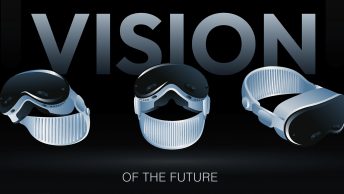When it comes to the future of Extended Reality (XR) we need to consider the ethical and moral consequences of using such a powerful technology.
With unprecedented real-world applications, XR has the power to enhance large swathes of the business world, from medical innovation, training, education to retail shopping and competitive gaming. For businesses looking to enter the XR space, understanding those technologies, regulation and respect for consumer data will be pivotal to success.
Brands should not underestimate the power of public perception, nor should they ignore the difficult conversations that must be had.
Doubt, mistrust and uncertainty
In the wake of widespread data scandals and the abuse of consumer records, many shoppers have grown wary of tech companies. Likewise, new technologies have a tendency of arousing consumer suspicions and trepidations.
According to research from PWC, 94% of businesses consider data on customer and client preferences as critical or important, but just 8% of consumers trust retailers with their data. It’s no surprise, then, that Facebook ranked dead last on AdWeek’s list of ‘how much do consumers trust the world’s 100 biggest brands.’
With the XR market share set to grow by 800% to $215 billion in the next 3-5 years, now is the time to consider the moral and ethical ramifications of using this technology.
In one of my articles, I compared XR to smartphone revolution. When you think about it it’s the right analogy. Smartphones change the way we live, consume, market and socialize. Now – think of XR which is 10x much more immersive and could be 10x more intrusive in our lives.
Have you seen this madness video? I hope this is not the future which awaits us, but show what could be when XR will get into the hands of irresponsible people or firms:
The need for an open dialogue is now
In the coming years, building consumer trust will be a crucial aspect for brands and marketers. I’m a strong proponent of using this technology to enhance our lives, not replace them with a virtual world. And this might happen if we don’t start to talk about it now.
Clearly, we need to address these worrying behavioural trends and stem the flagrant disregard for keeping consumer data safe. This isn’t just a business problem, either. It’s something that must be tackled as a collective, meaning involvement from governments, regulators, businesses and consumers alike. We’ve already experienced how powerful social media could be influencing elections, our behaviours and perception of the world. Let’s assume, that in time – we will be much closer to all data providers and collectors while using glasses, lenses or neural microchips. We will be hooked to the virtual world much more than 3 hours a day. It really makes you think. Doesn’t it?
Our mission should not be to put everyone into XR and isolate. On the contrary, we want to understand these technologies and use them in ways that actually make sense. We must educate people about the potential dangers of misuse or overuse, which will help ensure that XR technology is used in the pursuit of valuable applications. The need for an open dialogue is now.
When you think about it from this perspective. XR is actually the most human technology and will enable us to catch up with rapid growth of artificial intelligence (AI) and robotics. As humans, we’ll be able to learn faster and maximise our potential. To do that we must disrupt the way we are learning. Education is the key to our future. Our educational system didn’t change for centuries. Our classes still look the same as they did in XXI century. XR could be our way to teach and develop future generations.
Building trust in an age of doubt
We have recently conducted a consumer research survey where we polled 1,000 British and 1000 German consumers on questions about the future of XR.
Consider this: 72% (UK) consumers and 90% (in Germany) believe that XR will become part of their daily routine as the smartphone is now in the next 3-5 years. Younger generations are even more bullish. In fact, 81% (UK) and 95% (Germany) of 16- to 34-year-olds believe that XR will play a ubiquitous role in their daily lives.
Given these truths, it’s extremely important that we plan and account for the changes that are set to come. As the world hurtles towards a more immersive digital ecosystem, the convergence of XR and human behaviour will open a new window for discovery, interaction and purchase.
In 2019, 81% of companies expect to compete on the basis of customer experience (Gartner | Customer Experience Survey, 2019)
While competition is high, the rewards are great. In fact, customers who have a very good experience with a brand are 3.5x more likely to repurchase and 5x more likely to recommend that company to family and friends. (Temkin | Experience Matters Report, 2018)
With a diverse array of functions and use cases, the judicious application of cleverly crafted XR experiences can help businesses win the battle of customer experience.
Our focus shouldn’t be on technology for technology’s sake. It should remain firmly fixed on the human experience.
And at the end we must remember analogy for the smartphone devices. Don’t let ourselves get isolated in our own realities. Let ourselves to embrace those technologies and educate how to use them for good for our future generations.
When we use XR technology to enhance the user’s journey and solve real-world problems, then we can take one large step towards a truly “Augmented Humanity”. Happy to be a part of it.
The Questions:
- Who will be holding the key to virtual reality?
- Who will dictate what’s real and what is not,
- Who will be the master and who is a servant in virtual reality?




